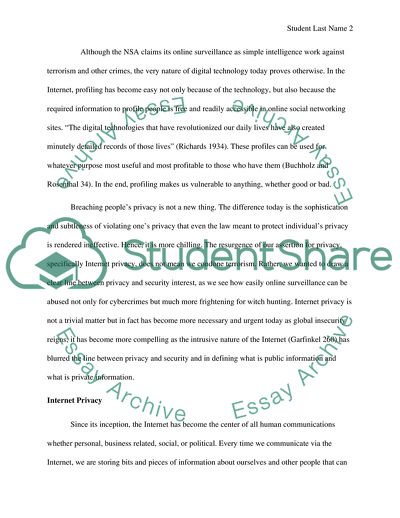Cite this document
(The Issues of Privacy and Surveillance about the Internet Coursework Example | Topics and Well Written Essays - 1500 words, n.d.)
The Issues of Privacy and Surveillance about the Internet Coursework Example | Topics and Well Written Essays - 1500 words. https://studentshare.org/journalism-communication/1806520-the-issues-of-privacy-and-surveillance-in-relation-to-the-internet
The Issues of Privacy and Surveillance about the Internet Coursework Example | Topics and Well Written Essays - 1500 words. https://studentshare.org/journalism-communication/1806520-the-issues-of-privacy-and-surveillance-in-relation-to-the-internet
(The Issues of Privacy and Surveillance about the Internet Coursework Example | Topics and Well Written Essays - 1500 Words)
The Issues of Privacy and Surveillance about the Internet Coursework Example | Topics and Well Written Essays - 1500 Words. https://studentshare.org/journalism-communication/1806520-the-issues-of-privacy-and-surveillance-in-relation-to-the-internet.
The Issues of Privacy and Surveillance about the Internet Coursework Example | Topics and Well Written Essays - 1500 Words. https://studentshare.org/journalism-communication/1806520-the-issues-of-privacy-and-surveillance-in-relation-to-the-internet.
“The Issues of Privacy and Surveillance about the Internet Coursework Example | Topics and Well Written Essays - 1500 Words”. https://studentshare.org/journalism-communication/1806520-the-issues-of-privacy-and-surveillance-in-relation-to-the-internet.


